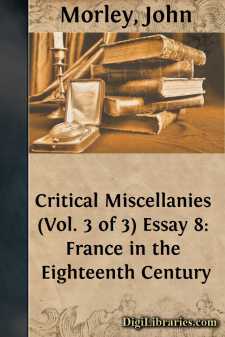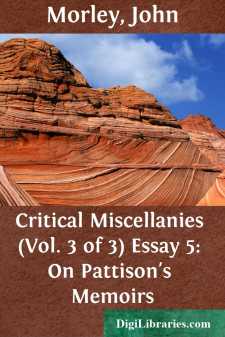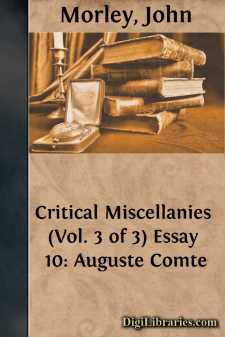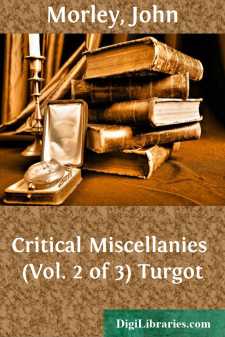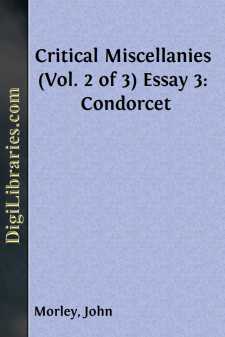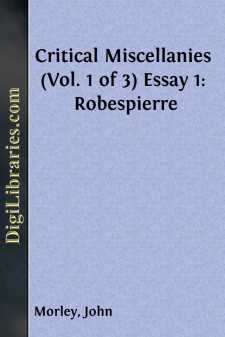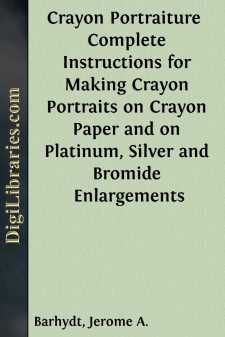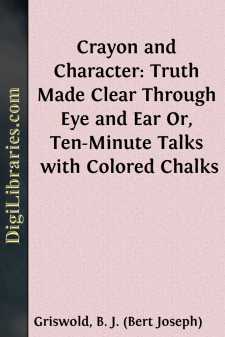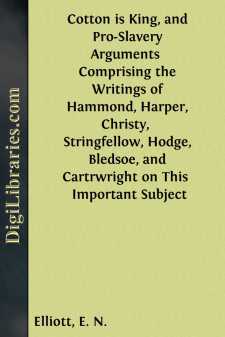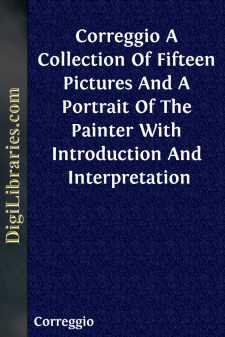Non-Classifiable
- Non-Classifiable 1768
Non-Classifiable Books
Sort by:
by:
John Morley
FRANCE IN THE EIGHTEENTH The announcement that one of the most ingenious and accomplished men of letters in Europe was engaged upon a history of the French Revolution, raised some doubts among those who have thought most about the qualifications proper to the historian. M. Taine has the quality of the best type of a man of letters; he has the fine critical aptitude for seizing the secret of an...
more...
by:
John Morley
ON PATTISON'S MEMOIRS. To reckon the subject of this volume among leading minds who have stamped a deep influence on our generation, is not possible even to the friendliest partiality. That was not his position, and nobody could be less likely than he would himself have been to claim it. Pattison started no new problem. His name is associated with no fertile speculation, and with no work of the...
more...
by:
John Morley
AUGUSTE COMTE. Comte is now generally admitted to have been the most eminent and important of that interesting group of thinkers whom the overthrow of old institutions in France turned towards social speculation. Vastly superior as he was to men like De Maistre on the one hand, and to men like Saint Simon or Fourier on the other, as well in scientific acquisitions as in mental capacity, still the aim...
more...
by:
John Morley
I. Anne-Robert-Jacques Turgot was born in Paris on the 10th of May 1727. He died in 1781. His life covered rather more than half a century, extending, if we may put it a little roughly, over the middle fifty years of the eighteenth century. This middle period marks the exact date of the decisive and immediate preparation for the Revolution. At its beginning neither the intellectual nor the social...
more...
by:
John Morley
CONDORCET. Of the illustrious thinkers and writers who for two generations had been actively scattering the seed of revolution in France, only Condorcet survived to behold the first bitter ingathering of the harvest. Those who had sown the wind were no more; he only was left to see the reaping of the whirlwind, and to be swiftly and cruelly swept away by it. Voltaire and Diderot, Rousseau and...
more...
by:
John Morley
A French writer has recently published a careful and interesting volume on the famous events which ended in the overthrow of Robespierre and the close of the Reign of Terror. These events are known in the historic calendar as the Revolution of Thermidor in the Year II. After the fall of the monarchy, the Convention decided that the year should begin with the autumnal equinox, and that the enumeration...
more...
PREFACE. In issuing this second treatise on Crayon Portraiture, Liquid Water Colors and French Crystals, for the use of photographers and amateur artists, I do so with the hope and assurance that all the requirements in the way of instruction for making crayon portraits on photographic enlargements and for finishing photographs in color will be fully met. To these I have added complete instructions for...
more...
The Plan of the Book. In the preparation of this book the author has had two great plans in mind: To prepare a work which will enable any person, who can speak to a class or an audience, to give a helpful, inspiring illustrated talk; to place in the hands of parents everywhere a book to enable them to teach the children a simple, fascinating method of drawing and, at the same time make the great truths...
more...
by:
E. N. Elliott
INTRODUCTION. There is now but one great question dividing the American people, and that, to the great danger of the stability of our government, the concord and harmony of our citizens, and the perpetuation of our liberties, divides us by a geographical line. Hence estrangement, alienation, enmity, have arisen between the North and the South, and those who, from "the times that tried men's...
more...
by:
Correggio
INTRODUCTION I. ON CORREGGIO'S CHARACTER AS AN ARTIST. The art of Correggio was very justly summed up by his first biographer, Vasari. After pointing out that in the matter of drawing and composition the artist would scarcely have won a reputation, the writer goes on to say: "To Correggio belongs the great praise of having attained the highest point of perfection in coloring, whether his works...
more...


